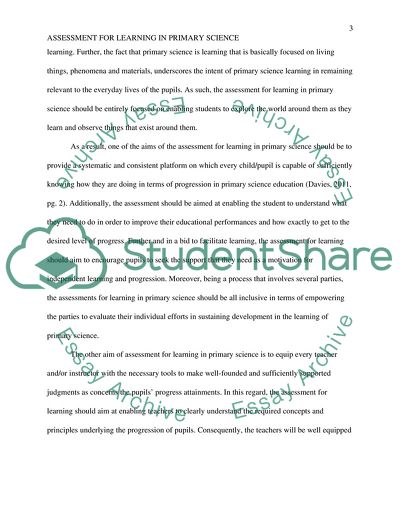Cite this document
(Aims of Assessment for Learning in Primary Science Case Study, n.d.)
Aims of Assessment for Learning in Primary Science Case Study. Retrieved from https://studentshare.org/education/1763466-discuss-evaluate-and-reflect-upon-the-aims-of-assessment-for-learning-in-primary-science-and-consider-strategies-that-may-be-employed-to-identify-childrens-strengths-and-weaknesses-show-how-assessment-information-can-be-used-to-monitor-childrens
Aims of Assessment for Learning in Primary Science Case Study. Retrieved from https://studentshare.org/education/1763466-discuss-evaluate-and-reflect-upon-the-aims-of-assessment-for-learning-in-primary-science-and-consider-strategies-that-may-be-employed-to-identify-childrens-strengths-and-weaknesses-show-how-assessment-information-can-be-used-to-monitor-childrens
(Aims of Assessment for Learning in Primary Science Case Study)
Aims of Assessment for Learning in Primary Science Case Study. https://studentshare.org/education/1763466-discuss-evaluate-and-reflect-upon-the-aims-of-assessment-for-learning-in-primary-science-and-consider-strategies-that-may-be-employed-to-identify-childrens-strengths-and-weaknesses-show-how-assessment-information-can-be-used-to-monitor-childrens.
Aims of Assessment for Learning in Primary Science Case Study. https://studentshare.org/education/1763466-discuss-evaluate-and-reflect-upon-the-aims-of-assessment-for-learning-in-primary-science-and-consider-strategies-that-may-be-employed-to-identify-childrens-strengths-and-weaknesses-show-how-assessment-information-can-be-used-to-monitor-childrens.
“Aims of Assessment for Learning in Primary Science Case Study”. https://studentshare.org/education/1763466-discuss-evaluate-and-reflect-upon-the-aims-of-assessment-for-learning-in-primary-science-and-consider-strategies-that-may-be-employed-to-identify-childrens-strengths-and-weaknesses-show-how-assessment-information-can-be-used-to-monitor-childrens.


